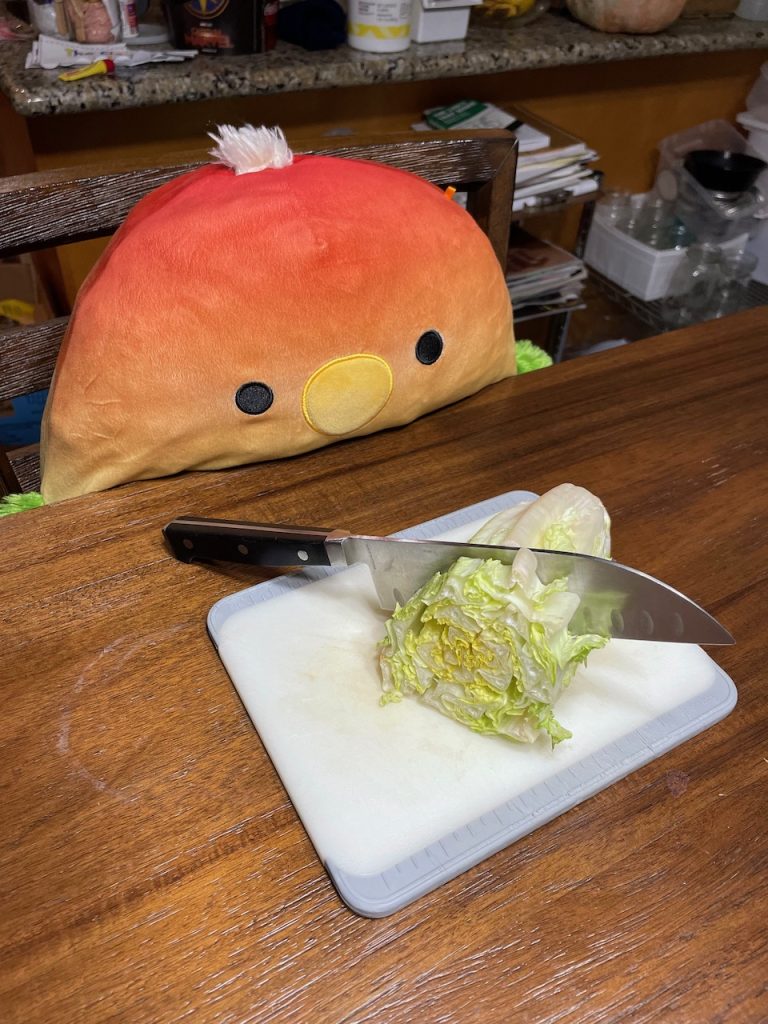This is a quote from a book and a song, so I can use it as a title. Even with a questionable intensifier.
Today is my last day as interim Managing Editor of The Urbanist. You’ll be pardoned if you didn’t notice my reign. Mostly it’s that interim tag, I was holding down the fort for the past six months. Now with hiring a replacement underway and the end of the legislative session, it’s time to hand back the editor’s Matrix of Leadership.
Now, there’s three things I’ve quietly tried really hard to make happen during my time editing Seattle’s best news website. Quietly to the outside world, of course. Very loud in the Slack channel.
First, I had to tamp down our bad writing habits. Cliches and overused words stick in my craw and I had to push the envelope by mowing down hundreds on a weekly basis. Other hands and eggs in baskets are crutches to be simply deleted. And I may have removed the word “but” as a sentence leader close to a thousand times. It’s unreadable when you have four sentences in a paragraph, and three of them start with buts.
There is something worse, and that’s the word “bold,” particularly when it describes plans, legislation, buildings, or anything to do with a city. Bold as a word is a double-edged sword, meaning both courageous and stupid. Bold grabs hold of the fork it stuck in the outlet. Bold is at the front of the unnecessary charge. Bold always jumps first. If it works out, bold looks like a leader. If it doesn’t, well it was a reckless adventure that we never need to try again.
When it comes to urbanism, bold is a meaningless term. It is begging for scraps, a small change to avoid doing the absolute worst. That’s still pretty bad. We begged for a bold vision of Seattle’s comprehensive plan, to address housing needs that already exist. One Seattle wants housing, but it still hasn’t gotten written into the comp plan update. While presented as courageous, bold is actually the bare minimum, and we spend too much time asking to get that scant level of paltry.

Second, I really detest churn and did my best to avoid it. Churn is the needless toil and whipsawing between tasks that comes from not having clear priorities. It takes up so much energy to reset, retool, and refocus on every little burp of news, as well as responding to the conversation about reseting, retooling, and refocusing in the aforementioned Slack. Meetings are always emotional labor.
Reducing churn means a lot of calendars and comparing notes about upcoming newsworthy events. It also means letting go of the spin and need to immediately react. There is no such thing as breaking news for a site like The Urbanist, where we do depth and explanation really well. If it’s a surprise to us, it means we were unprepared and we must do better with our calendars.
(Really, there’s no such thing as breaking news for anyone. Stop letting them sell you that.)
Unfortunately, churn is also a problem faced by everyone doing advocacy work. There is so much to improve, so many events spinning every direction, and such a massive bonus for organizations that can be consistently on the mark reacting to them. The rewards are high with free airtime on the evening news and pictures next to policy makers, or even becoming a policy maker oneself.
While winning the fast reaction game yields smooth sailing, everyone left in its wake is churning. Long time advocates get utterly burned out and newcomers with good ideas don’t get heard. It’s not always someone’s fault they miss a particular wave, as anyone with a weeklong cold or yearslong family event can attest. We’re humans, not news cycles.
The best service any advocacy group could perform is reducing the churn for everyone around them. Settle the hell down, make some priorities, and focus on them. Don’t let the internet or the news or a press release dictate your calendar. Perhaps the ongoing collapse of Twitter will be a good thing in that regard, and folks will simmer down their spastic react hot takes. Throwing spaghetti at the wall leaves the room a mess and everyone hungry.

Finally, I’ve very much enjoyed being the reminder that urbanism isn’t about density or buildings or even that smell of transit brakes in the rain. Sure, that’s all city stuff, but urbanism only deals with cities by default. I’ve gotten to poke at poké, toy with toons, and futz with football. They’re reminders that the buildings don’t make the city.
Urbanism is the knowledge that one’s entire life is made better by the public lives of others. That’s tied to cities because so many public lives happen openly in the city by default. Rural communities can find wonderful urbanism in church, family, and civic events. It doesn’t happen in other places, suburban places, because strict rules purposefully weed out public lives like dandelions on a manicured front lawn.
Advocacy toil and aspirational boldness are other methods to weed out public life. It’s hard to advocate for anything if it takes years of meetings and all we’re left with is a Son of Viaduct or a Frankenstation.
There is a deep desire to see and participate in public life that is not being fulfilled by the places we build. What is endless television or doom scrolling but a digital attempt to match the serendipity of encountering interesting public lives. A boisterous internet is just today’s version of a boisterous town square, something that we’re very capable of creating if we don’t get cliched or churned to oblivion.
That’s my exit interview advice to you: Don’t settle for bold. Don’t let yourself be churned. Don’t let the bastards grind you down. Our goal is great urbanism, and we don’t have that without each other.
Now, this is not goodbye. I will be around to write irritating columns and have a few fun Sunday Videos queued up. You can always listen to Natalie and me on The Urbanist Podcast, or find me for office hours. I’m putting the word Emeritus on my bio, and I’ll keep you all in the loop on the next big project.
Instead, consider this so long, and thanks for all the Phish.
Ray Dubicki is a stay-at-home dad and parent-on-call for taking care of general school and neighborhood tasks around Ballard. This lets him see how urbanism works (or doesn’t) during the hours most people are locked in their office. He is an attorney and urbanist by training, with soup-to-nuts planning experience from code enforcement to university development to writing zoning ordinances. He enjoys using PowerPoint, but only because it’s no longer a weekly obligation.


